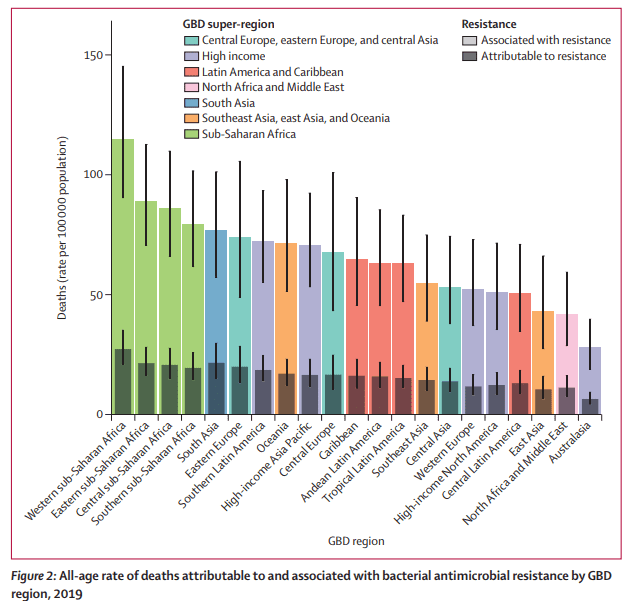Antimicrobial resistance is a major problem

A paper published earlier this year by the Antimicrobial Resistance Collaborators in The Lancet aims to quantify the size of the problem. The authors used a variety of data sources including systematic literature reviews, hospital system data, surveillance systems, and other sources. The authors estimated that these data covered 471 million individual records or isolates.
Using this approach, they found that:
…there were an estimated 4·95 million (3·62–6·57) deaths associated with bacterial AMR in 2019, including 1·27 million (95% UI 0·911–1·71) deaths attributable to bacterial AMR. At the regional level, we estimated the all-age death rate attributable to resistance to be highest in western sub-Saharan Africa, at 27·3 deaths per 100000 (20·9–35·3), and lowest in Australasia, at 6·5 deaths (4·3–9·4) per 100000.
How can we solve the problem? The first step is to make better use of current antibiotics by only using them when they are necessary. The Society for Healthcare Epidemiology of America (SHEA) released a statement last week on ways to improve the stewardship of antibiotic currently in our arsenal. The second step is to continue to develop new drugs to help patients who have anti-microbial resistant infections.




